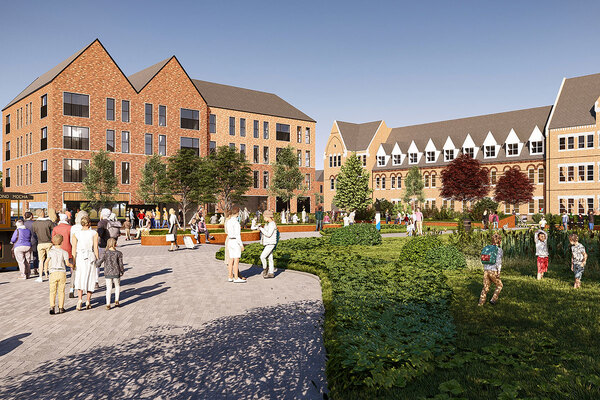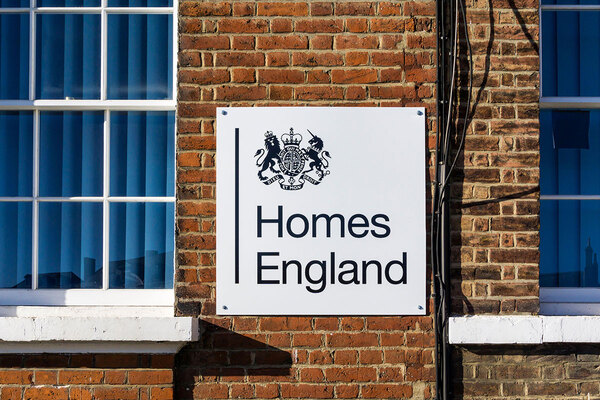 Jules Birch
Jules BirchLondon mayor: 1
 Jules Birch
Jules BirchHow much of a role will housing play in the election for the politician with the second most say over housing in England?
It’s easy to dismiss the London mayoral election as the Boris v Ken show, a contest between two big personalities and the current and former mayors. That’s understandable in view of media coverage dominated by who paid how much tax, what Boris called Ken in that lift and the people in that election broadcast that made Ken cry. However, that risks obscuring some fascinating ways in which housing is emerging as an issue in the election and some interesting new ideas from the candidates.
For starters, housing organisations are engaging with this election in a way that it’s hard to remember for years. That’s hardly surprising when the new mayor will have significant new powers over London’s housebuilding budget and a significant landbank in addition to their existing powers over planning.
Shelter led the way with homesforlondon.org.uk, a dedicated website aimed at making housing as much of a priority for London as transport already is under Transport for London. The National Housing Federation (NHF) has published a poll today revealing that four out of five London parents are worried that their children will be priced out of living in the capital and its own manifesto. And a coalition of organisations called Family Friendly London has released another poll showing that more affordable housing is the top priority for families with children and that 140,000 of them are still undecided.
Despite all that, housing barely featured as an issue in an Evening Standard mayoral election debate held before Easter until it was raised by hecklers right at the end. It’s hard to find on Boris Johnson’s website until you look more closely at his manifesto on Growing the London Economy.
On housing at least, Johnson seems to be presenting himself almost as the opposition candidate despite being the incumbent. His key claim is that he has delivered and secured new powers where Ken Livingstone was ‘not trusted by his own party to run housing’. That’s a theme hammered home in a Guardian piece by Conservative London Assembly member Andrew Boff today.
Johnson says he persuaded the coalition government to give him control of the HCA’s £3 billion investment programme for London plus control of 530 ha of land and also intervened to ensure that the NewBuy guarantee scheme covers flats as well as houses. He claims he has already delivered 52,000 new affordable homes and is on course to deliver 100,000 by 2015. In contrast, he says Livingstone promised a 50 per cent target for social housing in new planning applications but only delivered 32 per cent.
In social housing, Johnson pledges new higher space and design standards including a ‘significant proportion of family-sized housing’, another round of his First Steps home ownership programme and to explore ‘rent to save’ schemes that enable people to build up a deposit. On the private rented sector, Johnson promises a London Rental Standard and a single acceditation body for the capital. He also says he will ‘campaign against’ the rent control that Livingstone says he will campaign for on the grounds that it has reduced supply in the past – when neither has the power to do anything beyond campaigning at this stage.
In contrast, Ken Livingstone makes the London housing crisis a central feature of his campaign. His two key manifesto pledges are to drive down costs and drive up standards across all tenures and to build more new homes by making maximum use of land controlled by the Mayor and ‘enforcing tough planning regulations so that private developments reflect the needs of all Londoners, not just the very wealthy’. Supporters argue that Johnson’s record on new homes so far is mostly the result of Livingstone’s efforts because of time lags In construction. The key stat for Steve Hilditch of Red Brick is 56: the number of affordable housing starts in the first six months of 2011/12, the first year where development was the result of the policies of Johnson and Grant Shapps rather than Livingstone and Gordon Brown.
On housing supply, Livingstone says he achieved 32,000 new homes in his final year in office but that construction has ‘fallen through the floor’ under Johnson while relaxations in planning rules mean that only half of new homes are affordable to people on average incomes. He will also:
- release GLA land on a shared equity basis to housing associations and other developers ‘so London taxpayers get their money back’.
- work with London boroughs looking to build new council houses, with developers to remove barriers to new schemes and with pension funds to encourage them to invest.
- re-establish affordable home targets for all boroughs and will expect 50 per cent of new homes to be affordable ‘and will move as rapidly as possible towards ensuring that at least one third of new homes are for social rent’ with targets for family homes too.
- use the Mayor’s planning powers to block private development schemes that involve the loss of social rented or affordable housing.
In the private rented sector, he is promising a London Lettings Agency to free landlords and tenants from unregulated private letting agents. Only landlords will that sign up to a new Tenants’ Charter setting out minimum standards of what tenants can expect will be eligible to be listed via the new agency. Livingstone will also push for a London-wide landlord registration scheme, campaign for a London Living Rent and lobby for better regulation of the sector.
So Livingstone too is running as the opposition candidate (which he is), opposed not just to Johnson and his record but to the national coalition government too (with pledges like a campaign against the housing benefit cuts).
The two different stances could well indicate the shape of the next general election campaign too, with Labour bidding to run against the coalition’s record, the Conservatives playing up the problems they inherited from Labour for all they are worth and an argument in between about who really delivered. That is one that has already been rehearsed several times in the debate over the affordable rent programme.
Judging by the opinion polls so far, Johnson’s strategy of turning the election into a choice between ‘Boris’ and ‘Ken’ rather than between two different sets of policies seems to be working (look for that to be repeated in Dave v Ed). He may be far more vulnerable if Livingstone succeeds in using issues like housing against him.
However, unlike the general election, the race for London mayor will use the supplementary vote, which allows voters to vote for someone other than the main two candidates but still give a second preference to Livingstone or Johnson. As I’ll be explaining in part two of this blog, those other candidates have some interesting things to say about housing too.
Related stories







